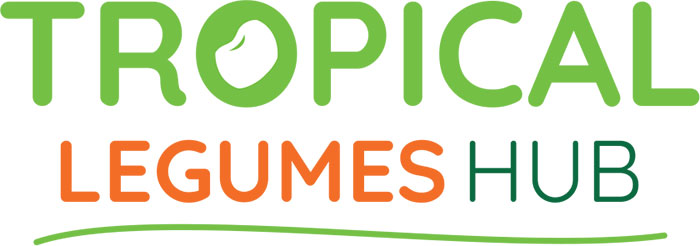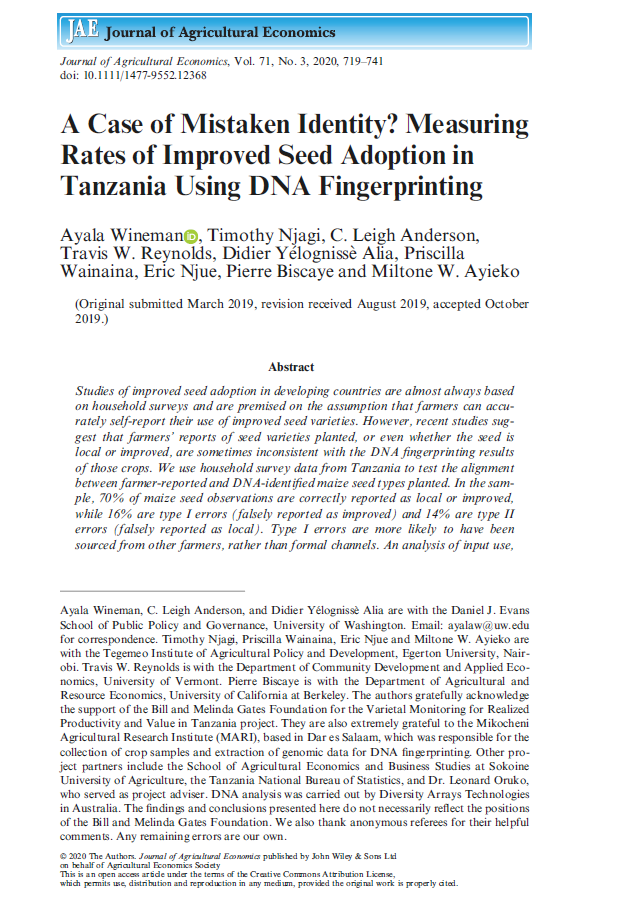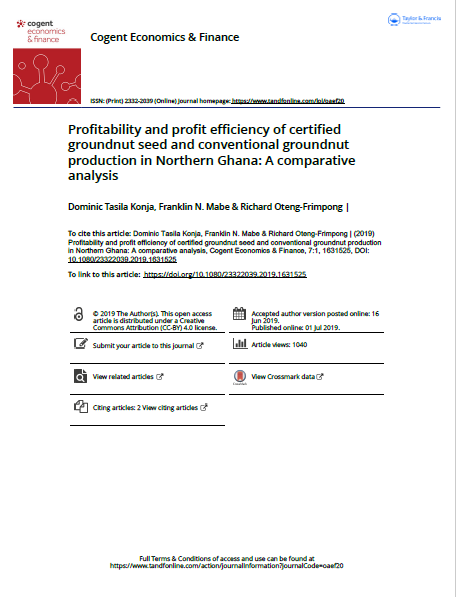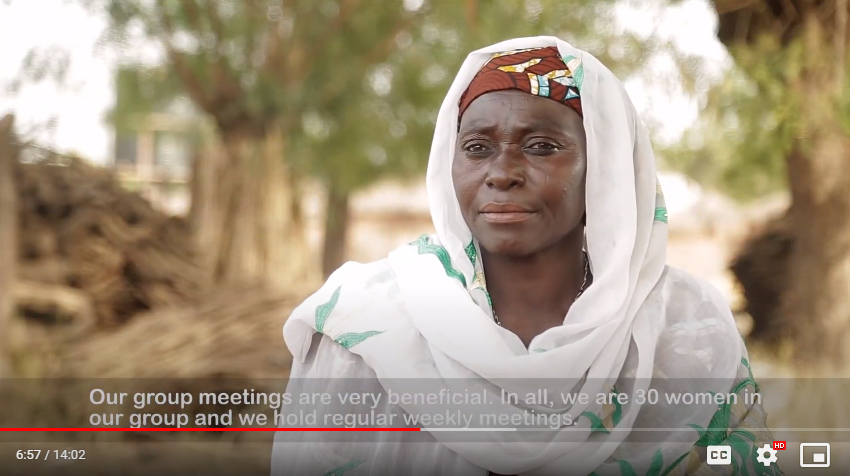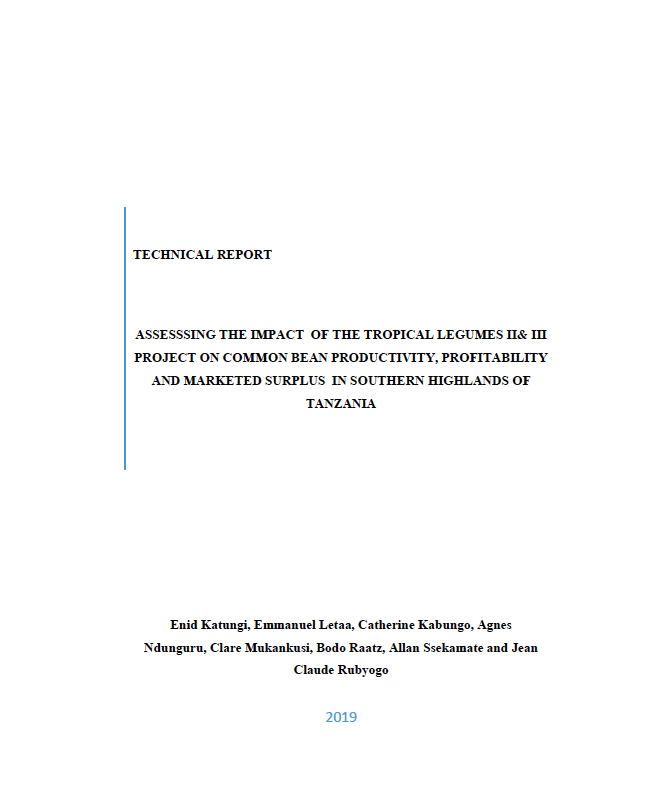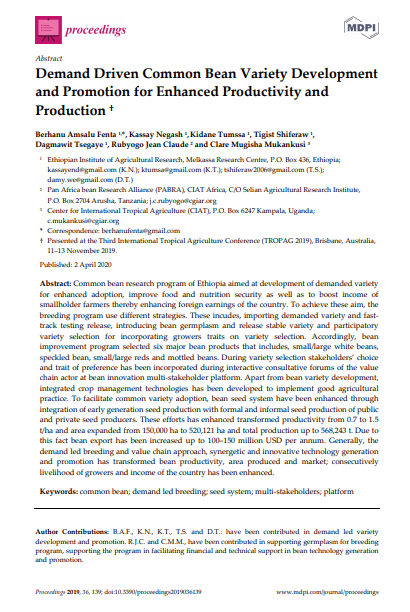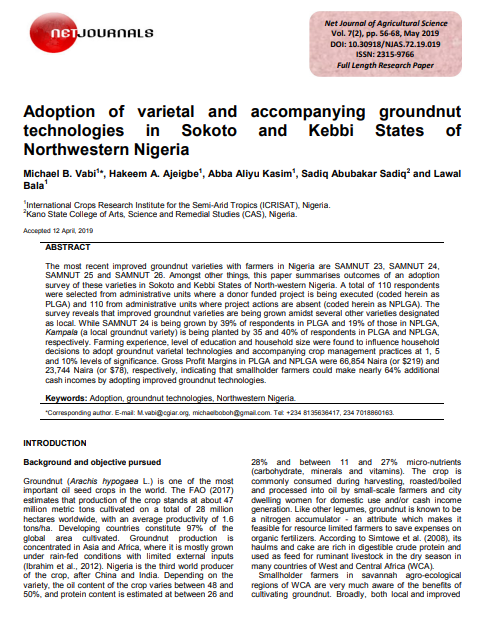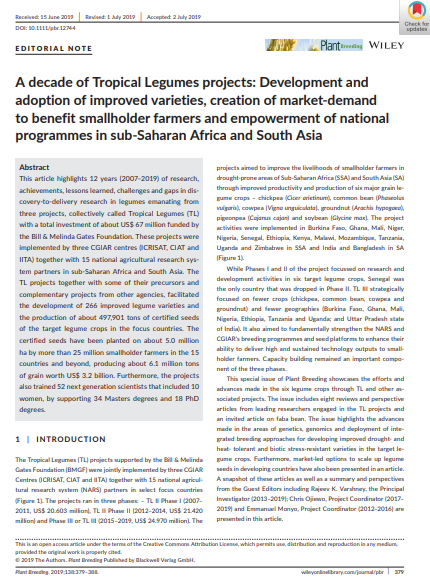A Case of Mistaken Identity? Measuring Rates of Improved Seed Adoption in Tanzania Using DNA Fingerprinting
This study used household survey data from Tanzania to test the alignment between farmer-reported and DNA-identified maize seed types planted.
Project: TLII, TLIII
File type: PDF (190.19 KB)
Nigeria Country Plan Baseline and Varietal Monitoring Survey
This report documents the adoption of improved cowpea varieties in Nigeria using two approaches: a traditional survey approach in which information was directly elicited from farmers, and a DNA fingerprinting approach.
Project: TLII, TLIII
File type: PDF (2.18 MB)
Genetics of Stay-Green Trait and Its Association with Leaf Spot Tolerance and Pod Yield in Groundnut
This study was designed to determine the genetic control of the stay-green trait and its relationship with leaf spot disease severity in groundnut. Results showed significant (p < 0.001) differences among the genotypes for early leaf spot (ELS), late leaf spot (LLS), leaf area under greenness (LAUG), SPAD chlorophyll meter readings (SCMR), and yield traits.
Project:
File type: PDF (1.40 MB)
Profitability and profit efficiency of certified groundnut seed and conventional groundnut production in Northern Ghana: A comparative analysis
This study seeks to compare profitability and profit efficiency of certified groundnut seed (CGS) and conventional groundnut (CG) production in Northern Ghana using cross-sectional data.
Project:
File type: PDF (1.34 MB)
Village Savings and Loans Associations (VSLA) Success Story
The Tropical Legumes projects identified strategic partnerships as a way to reach women farmers. In northern Ghana, to address women’s limited access to finance, the initiatives worked with small-scale community financial institutions called Village Savings and Loans Associations (VSLAs) to extend loans to women farmers. This video tells the story of the success of the VSLAs in Ghana.
Project: TLIII
File type: External site
Assessing the impact of the Tropical Legumes II & III project on common bean productivity, profitability and marketed surplus in the southern highlands of Tanzania
This report assesses the farm level utilization of improved common bean seed (i.e. improved varieties) in Tanzania and its impacts on bean yield, incomes, and marketed bean surplus.
Project: TLII, TLIII
File type: PDF (1.78 MB)
Tropical Legumes project intervention and advancement of the common bean program of Ethiopia
This poster demonstrates how the Tropical Legumes initiatives improved the performance of Ethiopia’s common bean program and enhanced the livelihoods of smallholder farmers.
Project: TLIII
File type: PDF (2.16 MB)
Demand driven common bean variety development and promotion for enhanced productivity and production
This study provides an overview of Ethiopia’s common bean research program, which aims to develop in-demand bean varieties for enhanced adoption, improve food and nutrition security, and generate higher incomes for smallholder farmers.
Project: TLIII
File type: PDF (139.41 KB)
Adoption of varietal and accompanying groundnut technologies in Sokoto and Kebbi States of Northwestern Nigeria
This paper summarises the outcomes of an adoption survey of new groundnut varieties in north western Nigeria.
Project: TLIII
File type: PDF (385.38 KB)
A decade of Tropical Legumes projects: Development and adoption of improved varieties, creation of market‐demand to benefit smallholder farmers and empowerment of national programmes in sub‐Saharan Africa and South Asia
This article highlights 12 years (2007–2019) of research, achievements, lessons learned, challenges and gaps in discovery‐to‐delivery research in legumes emanating from three projects, collectively called Tropical Legumes (TL) with a total investment of about US$ 67 million funded by the Bill & Melinda Gates Foundation.
Project: TLIII
File type: PDF (668.99 KB)
